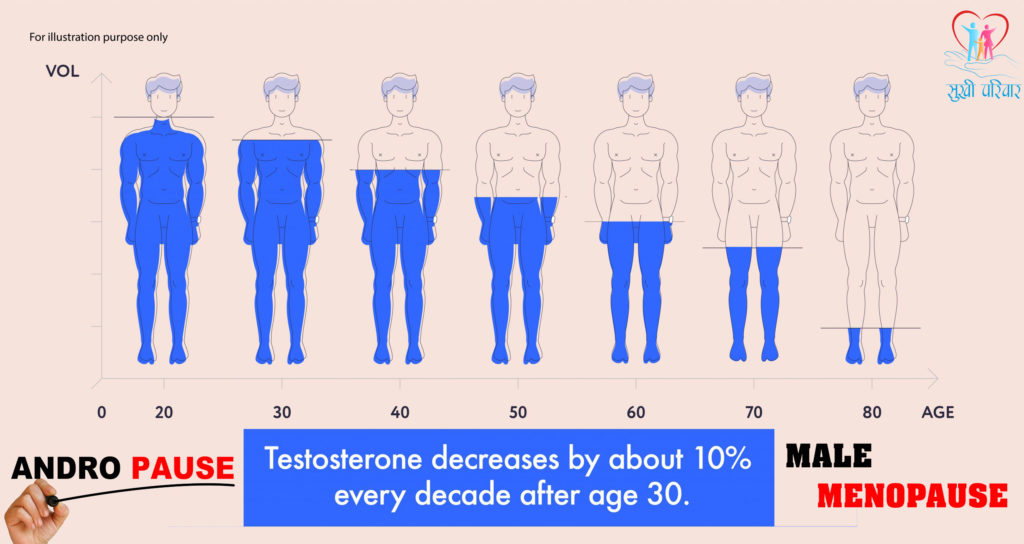Male menopause is the more common term for andropause. It describes age-related changes in male hormone levels. The same group of symptoms is also known as testosterone deficiency, androgen deficiency, and late-onset hypogonadism.
“Andras” in Greek means human male and “pause” in Greek a cessation; so literally “andropause” is defined as a syndrome associated with a decrease in sexual satisfaction or a decline in a feeling of general well-being with low levels of testosterone in older man.
Male menopause involves a drop in testosterone production in men who are age 50 or older. It’s often affiliated with hypogonadism. Both conditions involve lowered testosterone levels and similar symptoms.
If you’re a man, testosterone is a hormone produced in your testes. It does more than fuel your sex drive. It also fuels changes during puberty, fuels your mental and physical energy, maintains your muscle mass, regulates your fight-or-flight response, and regulates other key evolutionary features.
Male menopause differs from female menopause in several ways. For one thing, not all men experience it. For another, it doesn’t involve a complete shutdown of your reproductive organs. However, sexual complications may arise as a result of your lowered hormone levels.
Go to Symptoms of Male Menopause to know more symptoms
Causes
Some persons are born with conditions that cause Testosterone Deficiency (TD) such as:
Klinefelter syndrome
Noonan syndrome
Ambiguous genitalia (when the sex organs develop in ways that are not typical looking)
Some men may develop Low-T because of conditions like these:
Damage to testicles by accident
Removal of testicles because of cancer
Chemotherapy or radiation
Pituitary gland disease leading to hormone deficiency
Infection
Autoimmune disease (when the body makes antibodies that attack its own cells)
Basically, if your testicles keep making less testosterone than normal, your blood levels of testosterone will fall. Many men who develop TD have Low-T levels linked to:
Aging
Obesity
Metabolic syndrome (high blood pressure, high blood sugar, unhealthy cholesterol levels, and belly fat)
Use of medications such as antidepressants and narcotic pain medications
Men with certain health problems also tend to have low testosterone. Some of these are:
HIV (about 30 out of 100 also have low testosterone)
AIDS (about 50 out of 100 also have low testosterone)

